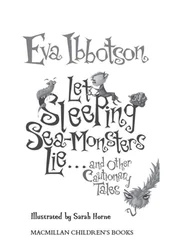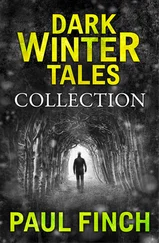With a whisper of silk, the last of her clothing slipped to the floor. Against Security’s objections, she put the cloak aside. She powered down her mask; it was only a mask now. Betelheimer grinned nastily as she knelt down on the bed.
“That’s more like—” Reaching for her, he clumsily knocked a framed picture from the end table. Petit bourgeois reflexes kicked in and he leaned over to retrieve it. It was a steelpoint portrait of Dante Alighieri.
Betelheimer’s brows knitted. “It’s that damned allegorist again. His fucking picture is everywhere in this town. Why?” She said nothing. “I asked you a question, whore! He never lived here—he was a goddamned Florentine. What is he to you?”
“He was a fuoruscito ,” the Lady Nakashima said quietly. “An exile. His political enemies had expelled him from his own city. He was a man who understood the pain of loss. Like us.”
Something in her voice burned through the German’s haze of alcohol and self-pity. Brusquely, he swung up a hand to trip a switch beam.
Light flared.
The Lady Nakashima was of a height with the Lady Christiaana, but that was all. The light revealed her ten-years-older breasts, her softening belly, her heavier thighs, her shorter legs. Sober, Gerhardt Betelheimer could never have confused the two.
He stared up in horror. “You’re not her!”
“So I told you.”
She looked down at his stocky torso, his round and pinkish stomach, with mingled compassion and disdain. His face was a parody of remorse; he was capable only of the extremes of emotion, it seemed, anger or anguish but nothing in between. His hands tried to cover his erect penis. It bounced free of them, like a ridiculous rubber toy. “You’re not her,” he repeated. “Oh God. Oh God. Forgive me, I—I mistook you for somebody else.”
She touched his lips with one cool finger.
“Your lady made a promise. I will keep it for her.” A gesture dimmed the lights, returning the mask of twilight to the room. Reaching into darkness, she moved his hands to her hips.
“But why?” he asked.
“What binds one of us,” she said, “binds us all.”
And she did for him as had been promised.
For this was the Lady Nakashima honored in the boardrooms and palazzos, and by her husband as well. Gerhardt Betelheimer found work with the Bache-Rockefeller Commune, and in later years rose high in the councils of Venice. The Lady Christiaana was censured for her part in the affair, a setback that took her most of a decade to recover from.
This is a story the fuorisoli tell and here is the lesson they wish you to take away from it: They lost Manhattan; they lost Japan; they lost Britain and Hong Kong and Taiwan out of the folly of their arrogance. When anticorporate ideologies first swept the globe they relied entirely on hirelings and employees to fight their battles. They did not accept responsibility. They enjoyed the fruit that others had planted and thus it was taken away from them. But this final island they would not lose.
Here they would make their stand.
In the Year One, we came in an armada of a million spacecraft to settle upon, colonize, and claim for our homeland this giant grasshopper on which we now dwell.
We dared not land upon the wings for, though the cube-square rule held true and their most rapid motions would be imperceptible on a historic scale, random nerve firings resulted in pre-movement tremors measured at Richter 11. So we opted to build in the eyes, in the faceted mirrorlands that reflected infinities of flatness, a shimmering Iowa, the architecture of home.
It was an impossible project and one, perhaps, that was doomed from the start. But such things are obvious only in retrospect. We were a young and vigorous race then. Everything seemed possible.
Using shaped temporal fields, we force-grew trees which we cut down to build our cabins. We planted sod and wheat and buffalo. In one vivid and unforgettable night of technology we created a layer of limestone bedrock half a mile deep upon which to build our towns. And when our work was done, we held hoe-downs in a thousand county seats all across the eye-lands.
We created new seasons, including Snow, after the patterns of those we had known in antiquity, but the night sky we left unaltered, for this was to be our home … now and forever. The unfamiliar constellations would grow their own legends over the ages; there would be time. Generations passed, and cities grew with whorls of suburbs like the arms of spiral galaxies around them, for we were lonely, as were the thousands and millions we decanted who grew like the trees of the cisocellar plains that were as thick as the ancient Black Forest.
I was a young man, newly bearded, hardly much more than a shirt-tail child, on that Harvest day when the stranger walked into town.
This was so unusual an event (and for you to whom a town of ten thousand necessarily means that there will be strangers , I despair of explaining) that children came out to shout and run at his heels, while we older citizens, conscious of our dignity, stood in the doorways of our shops, factories, and co-ops to gaze ponderously in his general direction. Not quite at him, you understand, but over his shoulder, into the flat, mesmeric plains and the infinite white skies beyond.
He claimed to have come all the way from the equatorial abdomen, where gravity is three times eye-normal, and this was easy enough to believe, for he was ungodly strong. With my own eyes I once saw him take a dollar coin between thumb and forefinger and bend it in half—and a steel dollar at that! He also claimed to have walked the entire distance, which nobody believed, not even me.
“If you’d walked even half that far,” I said, “I reckon you’d be the most remarkable man as ever lived.”
He laughed at that and ruffled my hair. “Well, maybe I am,” he said. “Maybe I am.”
I flushed and took a step backwards, hand on the bandersnatch-skin hilt of my fighting knife. I was as feisty as a bantam rooster in those days, and twice as quick to take offense. “Mister, I’m afraid I’m going to have to ask you to step outside.”
The stranger looked at me. Then he reached out and, without the slightest hint of fear or anger or even regret, touched my arm just below the shoulder. He did it with no particular speed and yet somehow I could not react fast enough to stop him. And that touch, light though it was, paralyzed my arm, leaving it withered and useless, even as it is today.
He put his drink down on the bar, and said, “Pick up my knapsack.”
I did.
“Follow me.”
So it was that without a word of farewell to my family or even a backward glance, I left New Auschwitz forever.
That night, over a campfire of eel grass and dried buffalo chips, we ate a dinner of refried beans and fatback bacon. It was a new and clumsy experience for me, eating one-handed. For a long time, neither one of us spoke. Finally I said, “Are you a magician?”
The stranger sighed. “Maybe so,” he said. “Maybe I am.”
“You have a name?”
“No.”
“What do we do now?”
“Business.” He pushed his plate toward me. “I cooked. It’s your turn to wash.”
Our business entailed constant travel. We went to Brinkerton with cholera and to Roxborough with typhus. We passed through Denver and Venice and Saint Petersburg and left behind fleas, rats, and plague. In Upper Black Eddy, it was ebola. We never stayed long enough to see the results of our work, but I read the newspapers afterwards, and it was about what you would expect.
Still, on the whole , humanity prospered. Where one city was decimated, another was expanding. The overspilling hospitals of one county created a market for the goods of a dozen others. The survivors had babies.
Читать дальше
![Майкл Суэнвик Tales of Old Earth [A collection of short-stories] обложка книги](/books/388351/majkl-suenvik-tales-of-old-earth-a-collection-of-short-stories-cover.webp)










